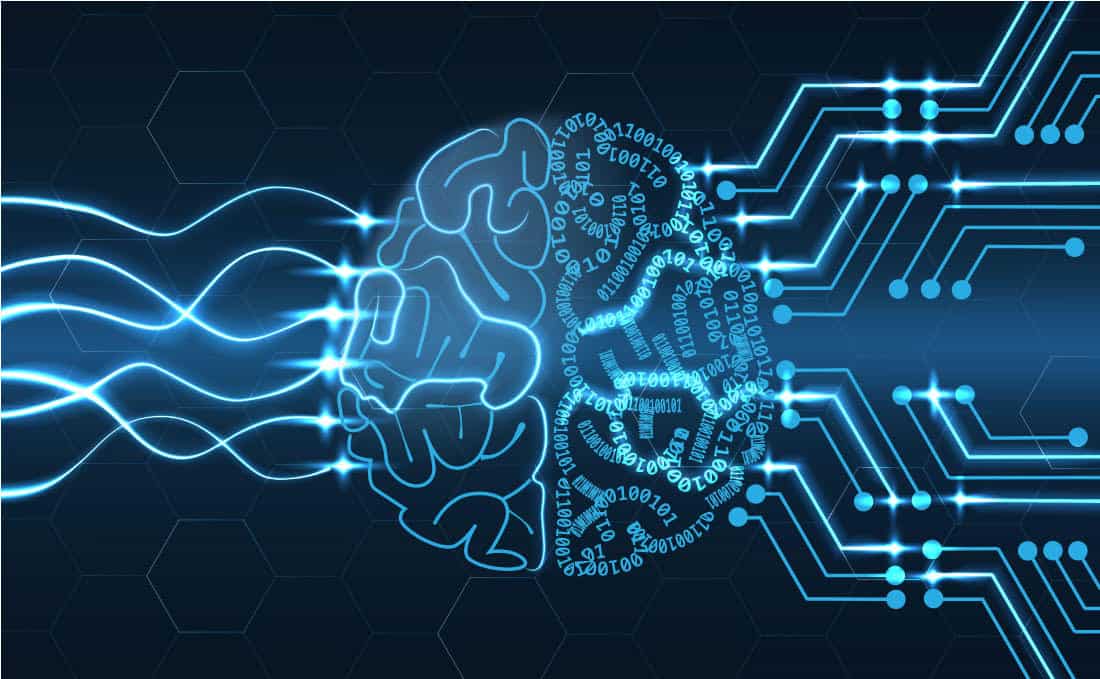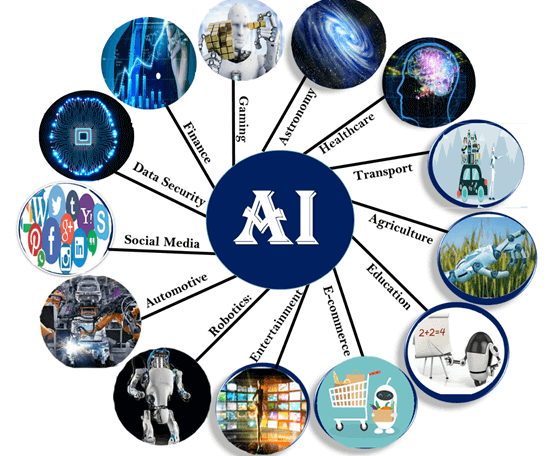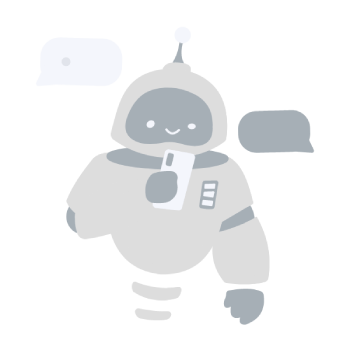
Artificial Intelligence (AI) has rapidly evolved from a futuristic concept to an integral part of our daily lives. As AI technologies continue to progress, they are reshaping industries and professions, including the role of programmers. In this blog post, we will delve into the profound influence of AI development on programmers and explore how this transformative landscape is affecting their skills, responsibilities, and prospects.
Artificial Intelligence, often abbreviated as AI, refers to the simulation of human intelligence processes by machines, particularly computer systems. It involves the creation and development of algorithms, models, and systems that enable computers to perform tasks that typically require human intelligence. AI encompasses a wide range of capabilities, from recognizing patterns in data to making decisions, solving problems, and even learning from experience.

The Changing Paradigm of Programming
The rise of AI has redefined the traditional paradigm of programming. Programmers, once focused solely on writing lines of code, now find themselves at the crossroads of human creativity and machine intelligence. AI technologies like machine learning and neural networks have become tools that can automate certain programming tasks, optimize algorithms, and even generate code. This shift challenges programmers to adapt their skill sets and embrace new ways of thinking.
Skill Evolution: From Code-Centric to Data-Centric
As AI assumes tasks like code generation and debugging, programmers are gradually shifting from being code-centric to data-centric. The ability to analyze data, design effective machine-learning models, and fine-tune algorithms has become essential. Programmers now need to understand the nuances of data preparation, feature engineering, and model evaluation to effectively leverage AI technologies
Expanded Responsibilities: Collaboration with AI
Rather than viewing AI as a replacement, programmers are finding themselves working in tandem with AI systems. AI tools can help programmers identify bugs, suggest optimizations, and automate repetitive tasks, thus enhancing productivity. This collaboration empowers programmers to focus on higher-level tasks such as designing architecture, implementing complex algorithms, and ensuring the ethical use of AI

Upskilling for the AI Era
To navigate this evolving landscape, programmers must upskill and acquire new competencies. Learning machine learning frameworks, understanding natural language processing, and gaining proficiency in AI-driven development platforms are becoming crucial. Additionally, a strong foundation in ethics is necessary to address the ethical implications of AI-powered systems.
The Future of Programming in the AI Era
The integration of AI in programming is not diminishing the role of programmers; rather, it is redefining their role. As AI takes over routine tasks, programmers will increasingly focus on tasks that require creativity, problem-solving, and strategic thinking. The demand for programmers who can design AI algorithms, interpret results, and adapt AI models for domain-specific applications is on the rise.
Challenges and Considerations
While AI presents numerous opportunities, it also brings challenges. The fear of job displacement is one concern, but history shows that technological advancements often lead to new opportunities and job roles. Another challenge lies in bias and transparency in AI systems. Programmers must ensure that the AI models they develop are fair, unbiased, and transparent, addressing issues related to algorithmic bias and ethical implications.

Ethical and Social Implications
The integration of AI into programming also raises ethical and social questions. As AI becomes more autonomous, programmers must grapple with accountability, safety, and the potential societal impacts of AI-driven decisions. Striking a balance between technological progress and responsible development is a crucial consideration.
The development of AI is not rendering programmers obsolete; instead, it is transforming their roles and expectations. As AI technologies continue to advance, programmers need to adapt, upskill, and collaborate with AI systems to thrive in this changing landscape. The synergy between human ingenuity and machine intelligence will drive innovation, shape industries, and ultimately contribute to a more interconnected and intelligent world. The future of programming in the AI era holds immense potential, and programmers are at the forefront of this exciting journey.

More than 1500 employers trust Devwork for their recruitment needs:
Cost optimization - Save time - Professional quality
Sign up for Devwork today to increase your company's competitiveness.
Or contact us
Email: hello@devworkx.vn
Tag Cloud:
Author: Phan Thị Hải Anh
Related Articles

How to learn programming from zero? Best tips for new beginners
Learning development from scratch can be a rewarding journey, but it can also be challenging. Don’t worry about that, here's a step-by-step guide on how to get started with development....
Exploring the power and diverse applications of IoT in our life
In our ever-connected world, the Internet of Things (IoT) has emerged as a transformative force, revolutionizing industries and the way we interact with technology. From smart homes to industrial automation, IoT has found its way into various aspects of our lives. Let's find out its wide-ranging applications that are shaping the present and future of technology in this article.

Portrait of a Vietnamese developers
The tech industry in Vietnam has been experiencing significant growth in recent years, becoming an integral part of the country's economy and global tech ecosystem. Vietnamese developers play a crucial role in shaping the industry's trajectory. This article delves into the characteristics of Vietnamese developers, examining their age, experience, gender, and location. By exploring these aspects, we can gain insights into the diverse and dynamic nature of the Vietnamese tech workforce.

The impact of ChatGPT on software engineer job opportunities in 2023
In recent years, technological advancements in artificial intelligence (AI) have begun to reshape various industries, and the field of software engineering is no exception. One notable development is ChatGPT, an AI language model that has the potential to revolutionize the way we interact with computers and automate various tasks. This blog post delves into the impact of ChatGPT on job opportunities for software engineers in the year 2023.


Unleashing the Power of Rust and its applications in software development
In the dynamic world of programming languages, Rust has emerged as a game-changer, offering a unique blend of performance, safety, and modern syntax. Rust, often dubbed as a "systems programming language that’s safe, concurrent, and fast," has gained significant traction since its inception. This blog post dives deep into the essence of Rust and explores its diverse applications in software development, highlighting its strengths, features, and impact on the tech landscape.

What is Blockchain? Blockchain applications and trends in 2023
In the realm of technological innovation, blockchain stands out as a groundbreaking concept that has the potential to revolutionize industries across the spectrum. Originating as the backbone of cryptocurrencies, blockchain has evolved into a versatile tool with applications far beyond digital currencies. As we enter the year 2023, the landscape of blockchain continues to evolve, with new trends shaping its trajectory. In this comprehensive blog post, we will explore "What is blockchain?"




